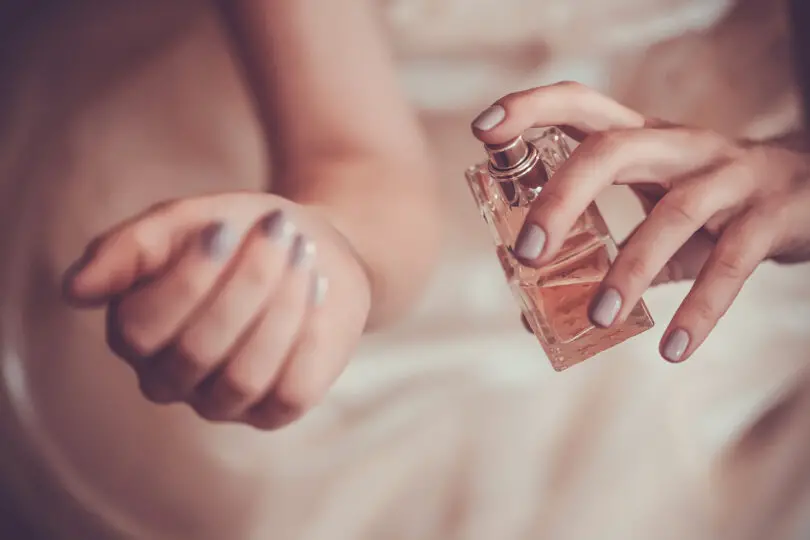Yes, flies are attracted to perfume due to its sweet and floral scent. However, certain scents may repel them.
We will explore the reasons behind flies being attracted to perfume and how you can prevent them from bothering you. Flies, known for their keen sense of smell, are naturally drawn to strong scents, including those found in perfumes. The sweet and floral fragrances that emanate from perfumes can be irresistible to flies, causing them to swarm around individuals who are wearing them.
It is important to note that not all fragrances attract flies, and some scents may actually repel them. By understanding the factors that attract flies to perfume, you can take the necessary measures to keep these pesky insects at bay. So, let’s dive in and explore the fascinating relationship between flies and perfume.
**1. The Science Behind Flies’ Attraction To Perfume**
The presence of flies can be quite bothersome, especially when you are trying to enjoy the sweet smell of your perfume. But have you ever wondered why these pesky insects are so attracted to perfume? It all comes down to the science behind flies’ attraction to scents.
Flies, like many other insects, have a keen sense of smell and are highly responsive to scents in their environment. The chemical components of perfume, such as fruity or floral notes, can mimic the smells that flies naturally seek out, like ripe fruit or decaying matter. These scents act as powerful attractants for flies, drawing them in with their enticing aroma.
But how do flies perceive and interpret scents? Flies have specialized receptors on their antennae and other sensory organs that allow them to detect and process odors. These receptors help them navigate their surroundings, find food sources, and even locate potential mates.
So, the next time you find flies buzzing around your perfume, remember that their attraction is deeply rooted in their biology. While it may be frustrating, it’s simply a natural response to the alluring scents that your perfume emits.
**2. Factors That Make Perfume Attractive To Flies**
Perfume has a certain allure that not only attracts humans but also piques the interest of flies. Several factors contribute to this attraction. Firstly, flies are drawn to sweet floral notes and fruit scents present in perfumes. These fragrances mimic the smell of ripe fruits and nectar, which are natural food sources for flies.
Secondly, strong and long-lasting fragrances in perfumes intensify their appeal to flies. The lingering scent creates a powerful presence that is difficult for flies to resist.
Lastly, heat and moisture play a role in amplifying the attraction of bugs, including flies, to perfume. Heat and moisture radiating from the body increase the volatility of perfume molecules, making them more potent and noticeable to insects.
In summary, the combination of sweet floral notes, strong fragrances, and the presence of heat and moisture make perfume an irresistible magnet for flies.
**3. Ways To Minimize Fly Attraction To Perfume**
Flies can be attracted to perfume due to their strong sense of smell. However, there are ways to minimize their attraction and keep them at bay. One effective method is to choose unscented or light-scented products, as flies are less likely to be attracted to subtle fragrances. When applying perfume, it is important to do so strategically. Avoid directly spraying it on exposed skin or areas where flies are commonly found. Instead, focus on applying the perfume to your clothing or accessories. Additionally, using natural or fly-repellent scents as alternatives can help deter flies. Citronella, eucalyptus, and lavender are known to repel insects, including flies. By following these tips, you can help minimize fly attraction to perfume and enjoy a pest-free environment.

Credit: www.amazon.com
**4. Common Myths About Flies And Perfume**
Flies are commonly found hovering around us, and one prevailing myth suggests that they are attracted to perfumes. However, it is essential to debunk this popular claim and understand the limitations of fragrance-based fly control.
Perfumes are often associated with attracting or repelling flies, but the truth is more complicated. While certain scents may temporarily deter flies, it is not a foolproof method of fly control. Flies are primarily attracted to odors related to food, waste, or decaying matter, rather than perfumes or fragrances.
It is important to note that each fly species may have different preferences when it comes to odors and fragrances. Some misconceptions suggest that specific scents like lavender, citronella, or lemon are effective in repelling flies. However, the effectiveness of these scents varies, and flies may still be attracted to other attractive factors in the environment.
Understanding the limitations of fragrance-based fly control can help in adopting more effective preventive measures. Maintaining proper sanitation, sealing entry points, and using physical barriers are more reliable ways to keep flies at bay.
**5. Other Factors That Attract Flies**
Flies are not only attracted to perfume but they are also attracted to several other factors. Food and waste sources are the primary attractors for flies. They are drawn to organic materials such as decaying food, garbage, and animal feces. Additionally, flies are influenced by environmental cues, such as temperature, humidity, and light. These factors can impact their behavior and make them more likely to be attracted to certain areas.
Furthermore, the contrast between a perfume scent and its surroundings can also play a role in attracting flies. Perfumes often have floral or fruity scents that can be mistaken for food sources by flies. The strong odor of perfumes may attract flies if there is a lack of other attractive food sources in the area.
In conclusion, flies are attracted to perfume due to a combination of factors, including the presence of food and waste sources as well as environmental cues. Understanding these factors can help in managing and preventing fly infestations.
**6. Distinct Fly Species And Their Attraction To Perfume**
Distinct Fly Species and Their Attraction to Perfume
House flies are known for their affinity for sweet fragrances. They are particularly drawn to floral scents, which mimic their natural food sources such as nectar and decaying organic matter. The strong, sugary aroma of perfume can easily attract these flies indoors.
Fruit flies, on the other hand, have a preference for fruity scents. The aroma of ripe fruits and fermented substances is irresistible to them. Perfumes with notes of citrus, berry, or tropical fruits can catch the attention of fruit flies.
Other fly species have their own unique perfume preferences. Some may be attracted to earthy or musky scents, while others might be repelled by certain fragrances. Understanding the specific preferences of different fly species can help in designing effective fly control strategies indoors.
**7. Diy Fly Traps And Repellents For Perfume Users**
Flies are a common nuisance, but are they attracted to perfume? Many people wonder if the sweet scent of perfume can actually attract flies. The truth is that flies are not typically attracted to perfume specifically. Flies are more commonly attracted to food and garbage, as they are seeking sources of nourishment. However, certain scents can repel flies.
There are homemade solutions for fly control that can be effective for perfume users. Essential oils, such as lavender, eucalyptus, and peppermint, have strong scents that flies find unpleasant. These oils can be used as natural fly repellents by diluting them in water and spraying them around the house.
Another option is to make your own fly traps using household items. For example, you can create a simple fly trap by placing a mixture of sugar, water, and dish soap in a jar. The sweet scent of the mixture will attract the flies, and the dish soap will trap them.
By using these DIY fly traps and repellents, perfume users can minimize the presence of flies in their homes. It is a natural and effective way to control the fly population without using harmful chemicals.
Frequently Asked Questions For Are Flies Attracted To Perfume
Do Flies Like Fragrance?
Yes, flies are attracted to certain fragrances due to their heightened sense of smell.
Can Perfume Attract Insects?
Yes, perfume can attract insects due to its fragrance.
Does Perfume Attract Black Flies?
Yes, perfume can attract black flies due to its appealing scent to insects.
What Scents Attracts Flies?
Some scents that attract flies are rotting food, garbage, decaying plant matter, and excrement.
Conclusion
It is evident that flies can indeed be attracted to perfumes due to the presence of certain ingredients that mimic the scent of decaying organic matter. They are drawn to the sweet and floral aromas, mistaking them for potential sources of food or breeding sites.
This attraction can be particularly problematic in outdoor settings or when perfume is applied excessively. To minimize fly encounters, it is advisable to avoid using strong, sweet fragrances when spending time outdoors or in areas where flies are prevalent. Opting for lighter scents or going fragrance-free altogether can greatly reduce the likelihood of attracting flies.
Additionally, practicing good hygiene and keeping areas clean and free of food residue will help deter flies from congregating. By understanding the factors that attract flies to perfume and taking appropriate measures, we can enjoy the benefits of our favorite fragrances without the unwanted presence of these pesky insects.
Remember, a little awareness can go a long way in preventing fly problems and ensuring a more enjoyable environment.








